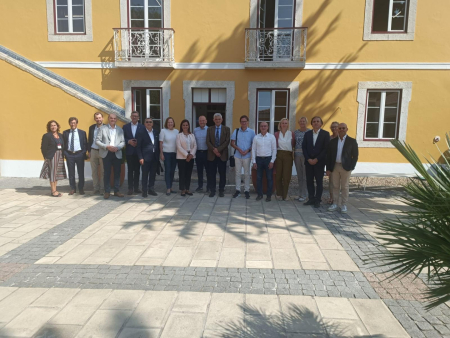LBTU rector signs an agreement with the European University Alliance
Developing opportunities for international cooperation in studies and science, the Latvian University of Life Sciences and Technologies (LBTU) has become a member of the "ChallengeEU" alliance of European universities. On September 20, LBTU rector Irina Arhipova participated in a meeting in Lisbon (Portugal), where a cooperation agreement was signed. Joining the alliance will significantly increase the university's pace of development, including expanding the international mobility opportunities for students, teaching staff and scientists. It is one of the 14 new university alliances, whose activity has been supported by the European Commission within the 2024 Erasmus+ call for European universities.
In order to implement the transformation of higher education in Europe and create a unified and competitive higher education space, the European Commission has supported the creation of 64 university alliances in recent years, which unite more than 560 higher education institutions.
LBTU has become a member of one of these alliances and in the coming years, together with eight European universities from Germany, France, Sweden, Switzerland, North Macedonia, Spain and Poland, will implement study programs, research projects and implement good management principles.
In the alliance, Offenburg University of Applied Sciences, European University of Lisbon, Mid Sweden University, ECAM La Salle, Arts Northwestern Switzerland, South East European University European University of Valencia un University of Warmia and Mazury, also started joint work with LBTU.
LBTU is a science university – a leader in the creation of innovations related to the bioeconomy and related industries and in the sustainable use of natural resources in the Baltic Sea region, contributing to the introduction of innovations in the national economy to promote the balanced development of Latvia’s regions and improvement of the quality of life of society.
European university alliances bring together a new generation of Europeans and enable them to study and work in different European countries, in different languages, in different sectors and academic disciplines. Students can obtain a high-level education by combining studies in several European countries, contributing to the attractiveness and competitiveness of European higher education on an international scale. These alliances also enable innovation in European regions, enabling students to collaborate with academics, researchers, companies, cities, institutions and civil society organisations.
The aim of European universities is to improve the international competitiveness of European universities and promote European values and identity. This initiative will promote long-term and strategic cooperation between higher education institutions, promoting the principle of innovative research and educational activities to solve societal problems.

